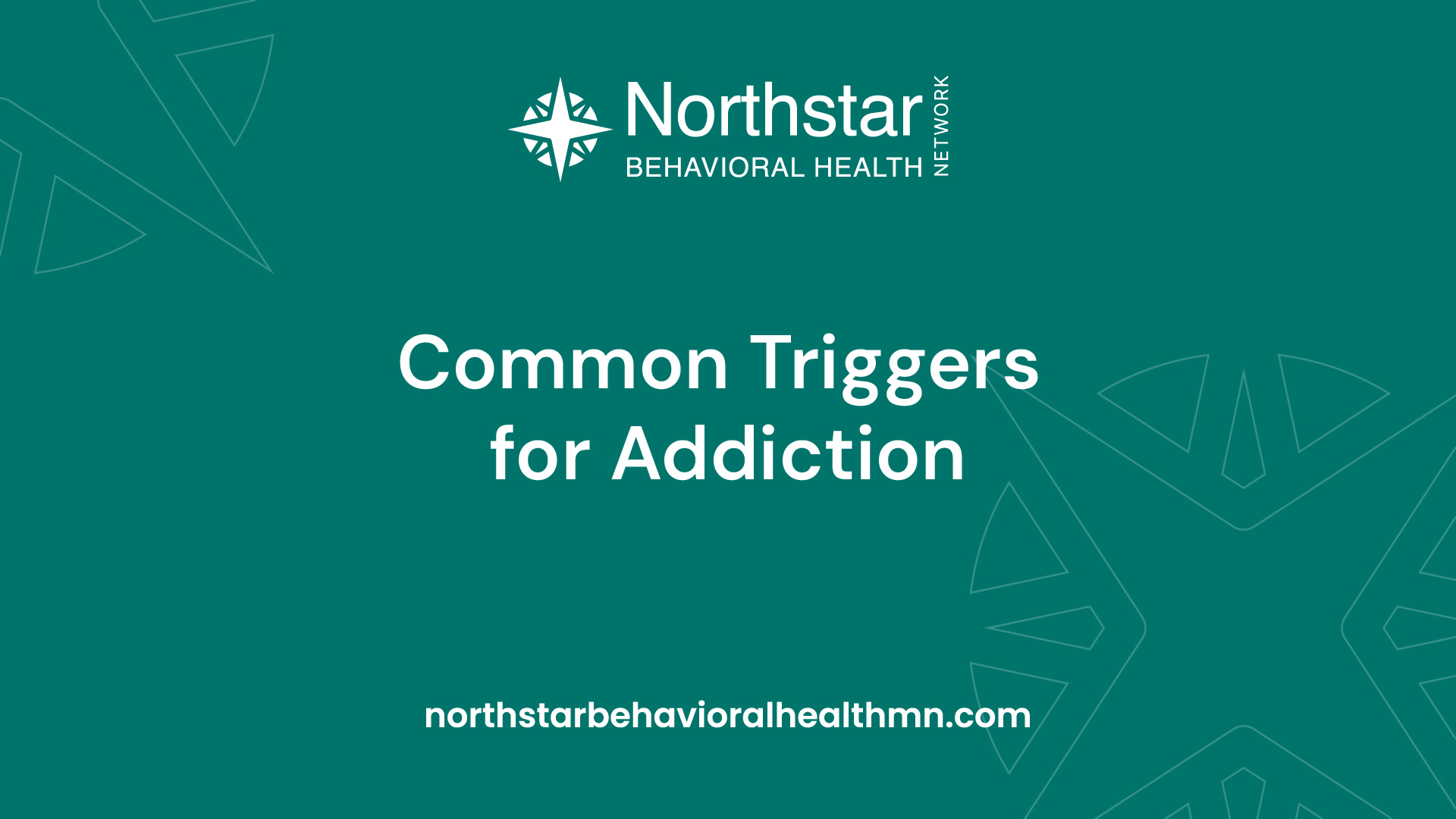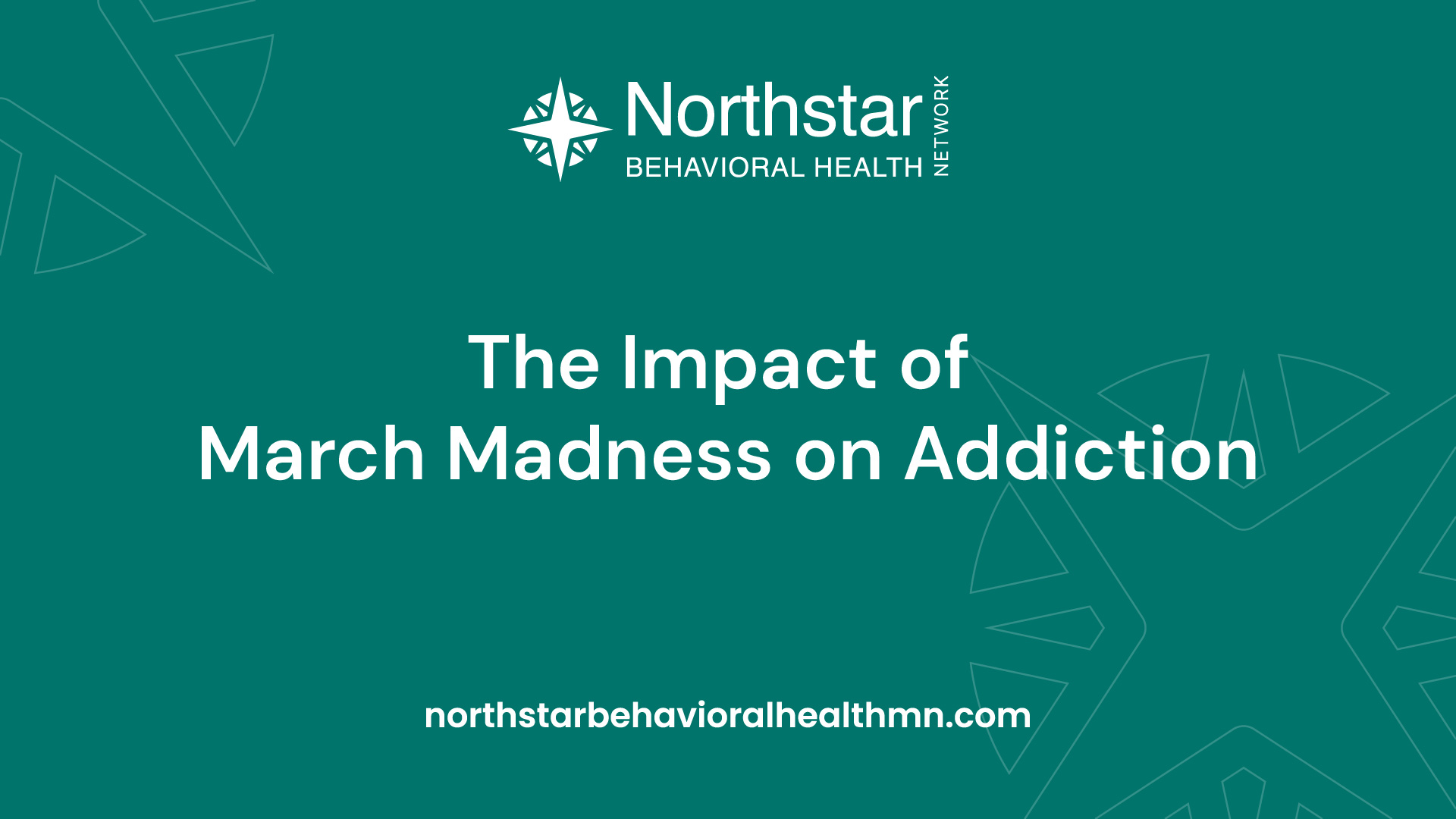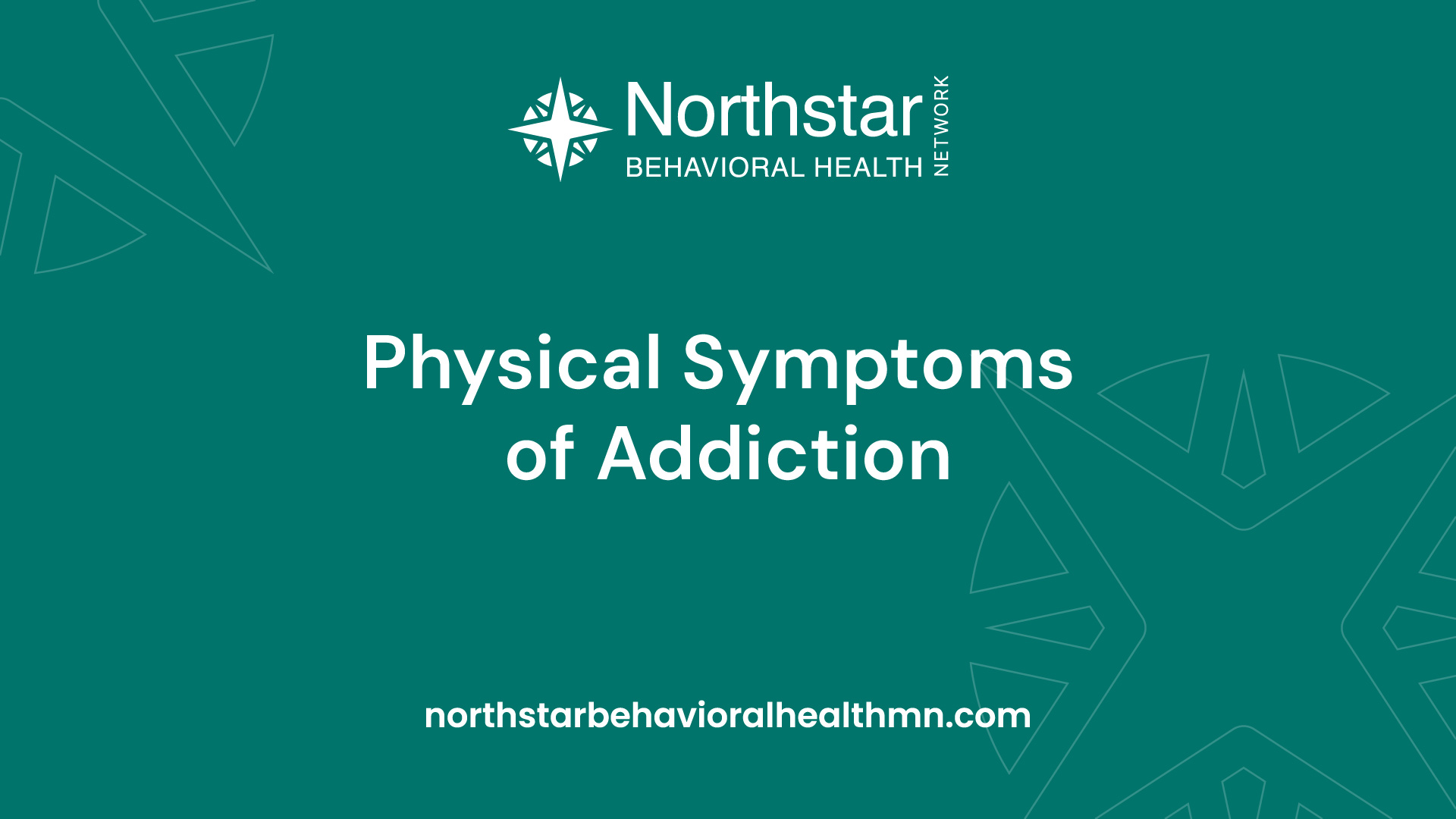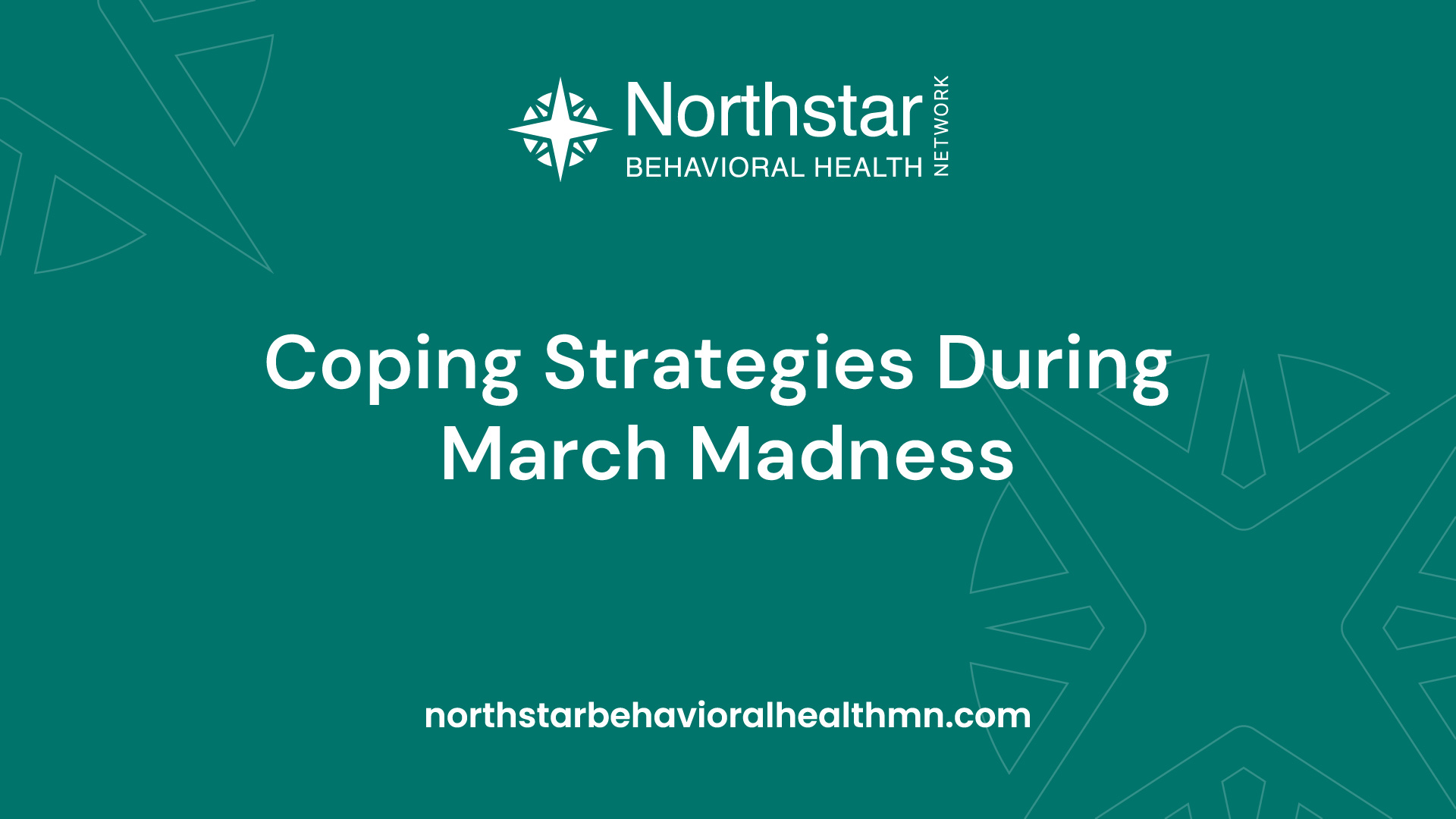August 27, 2024
Addiction And March Madness
Discover the impact of March Madness on addiction and find support to stay strong on your recovery journey.


Understanding Addiction
To effectively tackle addiction, it is essential to first understand what addiction entails and the common triggers that can contribute to its development.
Definition of Addiction
Addiction is a complex and chronic condition characterized by compulsive engagement in a behavior or substance use, despite negative consequences. It is important to note that addiction is not limited to substance abuse alone; it can also involve behaviors such as gambling, gaming, or even excessive internet use.
Individuals struggling with addiction often experience a loss of control over their actions, with the behavior or substance use becoming the central focus of their lives. This intense preoccupation and craving can lead to a wide range of negative consequences, including damage to physical health, strained relationships, and impairment in various areas of life.
Common Triggers for Addiction

Addiction can be triggered by various factors, and it is crucial to recognize these common triggers to better address the underlying causes. Some of the key triggers include:
- Stress and Emotional Distress: High levels of stress, trauma, or unresolved emotional issues can contribute to the development of addiction. Individuals may turn to substances or behaviors as a way to cope with these difficulties.
- Genetic Predisposition: Research suggests that genetics can play a significant role in addiction vulnerability. Certain genetic factors can make individuals more susceptible to developing addictive behaviors when exposed to substances or specific activities.
- Environmental Factors: The environment in which an individual lives can also influence the development of addiction. Factors such as peer pressure, availability of substances, and exposure to addictive behaviors can contribute to the initiation and maintenance of addiction.
- Mental Health Disorders: Co-occurring mental health disorders, such as depression, anxiety, or trauma-related disorders, are commonly associated with addiction. Substance use or engaging in addictive behaviors may temporarily alleviate symptoms, leading to a cycle of dependency.
Recognizing and understanding these triggers can help individuals struggling with addiction seek appropriate support and develop effective coping strategies. If you or someone you know is in need of assistance, it is important to reach out to professionals who can provide guidance and support.
Consider visiting our article on problems getting insurance coverage for drug rehab? you are not alone. for more information on accessing treatment options. Remember, recovery is possible with the right help and support systems in place.
The Impact of March Madness on Addiction

March Madness, the popular college basketball tournament, can have a significant impact on addiction due to increased social gatherings and the influence of peer pressure. It is important to be aware of these factors and take necessary precautions to protect oneself from potential triggers.
Increased Social Gatherings and Drinking
March Madness brings people together to watch games, often in social settings such as bars, parties, or restaurants. These social gatherings can create an environment where alcohol consumption is prevalent. For individuals struggling with addiction, these settings can be particularly challenging as they may face increased temptation and peer pressure to engage in excessive drinking or substance use.
It is crucial to recognize the potential risks associated with these gatherings and develop strategies to navigate them safely. Some helpful approaches include finding alternative activities that do not involve alcohol or drugs, setting personal boundaries and limits, and seeking support from friends, family, or support groups.
Influence of Peer Pressure
Peer pressure can be a significant factor during March Madness events. Friends or acquaintances may encourage or pressure individuals to consume alcohol or engage in substance use as a way to enhance the experience or fit in with the group. This pressure can be challenging to resist, particularly for those in recovery or trying to abstain from addictive substances.
Recognizing and responding to peer pressure is essential. It is important to prioritize personal well-being and make choices that align with one's recovery goals. Building a strong support system of people who understand and respect these choices can be immensely helpful. Seeking support from fellow recovering individuals, attending support group meetings, or talking to a therapist can provide valuable guidance and encouragement.
Remember, it is okay to say no and prioritize one's health and recovery. It is crucial to be aware of the potential influence of peer pressure during March Madness events and take steps to protect oneself from relapse triggers.
By understanding the impact of March Madness on addiction, individuals can proactively prepare themselves and implement strategies to navigate social gatherings and peer pressure. Seeking support, setting boundaries, and finding alternative activities can help individuals in their recovery journey and maintain their commitment to sobriety. Remember, reaching out for help is never a sign of weakness, but a courageous step towards a healthier and happier life.
Recognizing Warning Signs
When it comes to addiction, recognizing the warning signs is crucial in order to seek help and support. Addiction can manifest in various ways, both in terms of changes in behavior and physical symptoms. By being aware of these signs, individuals and their loved ones can take the necessary steps towards recovery and treatment.
Changes in Behavior
One of the key indicators of addiction is a noticeable change in behavior. These behavioral changes can include:
- Withdrawal from social activities: Individuals may start to isolate themselves from friends, family, and activities they used to enjoy.
- Neglect of responsibilities: Addiction can cause a decline in performance at work or school, as well as a neglect of personal responsibilities and obligations.
- Mood swings and irritability: People struggling with addiction may experience frequent mood swings, irritability, and a general change in their overall demeanor.
- Financial difficulties: Addiction often leads to financial strain due to excessive spending on substances or other related expenses.
It's important to remember that these changes in behavior can vary from person to person, and not everyone will exhibit the same signs. If you or someone you know is experiencing these changes and there is a concern about addiction, it's advisable to seek professional help. For more information on addiction and its impact on teens, refer to our article on an alarming number of teens driving under the influence of alcohol or drugs.
Physical Symptoms of Addiction

Apart from behavioral changes, addiction can also manifest through various physical symptoms. These symptoms may vary depending on the substance being abused, but some common physical signs of addiction include:
- Changes in sleep patterns: Insomnia or excessive sleepiness can be indicative of addiction.
- Weight fluctuations: Significant weight loss or gain without any apparent cause can be a physical sign of substance abuse.
- Poor hygiene: Individuals struggling with addiction may neglect their personal hygiene, leading to a decline in their overall appearance and grooming habits.
- Bloodshot eyes or dilated pupils: Certain substances can cause noticeable changes in the appearance of the eyes, such as bloodshot eyes or dilated pupils.
- Tremors or shakes: In some cases, addiction can result in physical tremors or shaky movements.
It's important to note that these physical symptoms alone may not provide a definitive diagnosis of addiction, as they can be caused by other factors as well. However, when combined with changes in behavior, they can be strong indicators that further evaluation is needed. If you suspect someone may be struggling with addiction, it is crucial to encourage them to seek professional help.
For more information on how to talk to your kids about drugs and substance abuse, refer to our article on do you talk to your kids about prescription drug abuse?.
Recognizing the warning signs of addiction is an important step towards helping individuals get the support they need. By being vigilant and aware of these signs, you can play a role in encouraging early intervention and promoting the path to recovery. Remember, seeking professional help and building a support system are crucial components of the recovery journey.
Seeking Help and Support
When dealing with addiction, seeking help and support is crucial for recovery. It's important to understand the importance of professional help and the role of support systems in the journey towards overcoming addiction.
Importance of Seeking Professional Help
Seeking professional help is a vital step in addressing addiction. Addiction is a complex issue that often requires specialized treatment and guidance. Professionals such as therapists, counselors, and addiction specialists have the knowledge and expertise to provide the necessary support and guidance throughout the recovery process.
Professional help can take various forms, including individual therapy, group therapy, and rehabilitation programs. These resources offer a safe and supportive environment where individuals can explore the underlying causes of their addiction, develop coping strategies, and acquire the tools needed to maintain long-term recovery.
Reaching out for professional help is not a sign of weakness, but rather an act of strength and self-care. It allows individuals to benefit from evidence-based treatments and therapies tailored to their specific needs. If you or someone you know is struggling with addiction, consider seeking professional help to receive the support and guidance needed for a successful recovery.
Support Systems for Recovery
In addition to professional help, having a strong support system is instrumental in the recovery journey. A support system can consist of family members, friends, support groups, or peers who understand and empathize with the challenges of addiction.
Support systems provide a sense of community, encouragement, and accountability. They offer a safe space for individuals to share their experiences, challenges, and successes. Support groups, such as Alcoholics Anonymous (AA) or Narcotics Anonymous (NA), provide a platform for individuals to connect with others who have gone through similar struggles, fostering a sense of belonging and understanding.
Family and friends can also play a vital role in supporting individuals in their recovery. Their understanding, encouragement, and willingness to educate themselves about addiction can make a significant difference. Open and honest communication within the family can help rebuild trust and facilitate healing.
Remember, building a support system takes time and effort. It's important to surround yourself with individuals who uplift and support your recovery journey. If you're unsure where to start, consider reaching out to a local addiction helpline or seeking recommendations from healthcare professionals. You are not alone, and there are people and resources available to support you in your path to recovery.
By recognizing the importance of seeking professional help and building a strong support system, individuals can take significant steps towards overcoming addiction. Remember, recovery is a journey, and with the right help and support, it is possible to break free from the grip of addiction and live a fulfilling, healthy life.
Coping Strategies During March Madness

March Madness can be a challenging time for individuals who are dealing with addiction. The increased social gatherings and potential triggers can make it difficult to maintain sobriety. However, there are coping strategies that can help navigate this period successfully.
Finding Alternative Activities
One effective coping strategy during March Madness is to find alternative activities to engage in. By redirecting your focus and energy towards new hobbies or interests, you can reduce the temptation to turn to addictive substances.
Consider exploring activities that bring you joy and provide a healthy outlet. This could include engaging in physical exercise, such as going for walks, practicing yoga, or participating in sports. Engaging in creative pursuits, such as painting, writing, or playing a musical instrument, can also be a great way to channel your energy into something positive.
Additionally, spending quality time with loved ones who support your recovery can provide a sense of connection and fulfillment. Plan gatherings or activities with friends and family members who understand and respect your journey towards sobriety.
Setting Boundaries and Limits
Another important coping strategy during March Madness is setting boundaries and limits. It's essential to establish clear guidelines for yourself to prevent relapse and protect your recovery.
Consider setting limits on the amount of time you spend watching March Madness games or attending social events where alcohol or drugs may be present. By defining your boundaries, you can create a safe and supportive environment for yourself.
Communicate your boundaries with your friends and loved ones, so they understand and respect your needs. Surround yourself with individuals who are supportive of your recovery and who will help you uphold your boundaries.
It may also be helpful to have an accountability partner or a support group to lean on during this time. They can provide guidance, encouragement, and help you stay accountable to your recovery goals. For more information on support systems, refer to our article on support systems for recovery.
By finding alternative activities and setting boundaries, you can successfully navigate the challenges of March Madness while maintaining your recovery. Remember to stay connected with your support system and prioritize self-care throughout this period. Celebrate your milestones and progress, no matter how small they may seem. Your journey towards sobriety is a remarkable achievement, and you deserve to be proud of your strength and determination.
Staying Strong in Your Recovery Journey
Recovery from addiction is a challenging and ongoing process that requires dedication and perseverance. During March Madness, it's important to prioritize your recovery and implement strategies to stay strong. Here are two key aspects to focus on: practicing self-care and celebrating milestones and progress.
Practicing Self-Care
Practicing self-care is crucial in maintaining your recovery during March Madness. It involves actively taking care of your physical, emotional, and mental well-being. Here are some self-care strategies you can incorporate into your daily routine:
- Prioritize Restful Sleep: Getting enough sleep is essential for your overall well-being and can help prevent relapse. Establish a regular sleep schedule and create a relaxing bedtime routine to promote quality sleep.
- Engage in Regular Exercise: Physical activity not only improves your physical health but also boosts your mood and reduces stress. Find activities that you enjoy, such as walking, jogging, yoga, or dancing, and incorporate them into your routine.
- Eat a Balanced Diet: Nourishing your body with nutritious foods can support your recovery journey. Focus on consuming a well-balanced diet that includes fruits, vegetables, lean proteins, whole grains, and healthy fats.
- Practice Stress-Relief Techniques: Find healthy ways to manage stress, such as meditation, deep breathing exercises, journaling, or engaging in hobbies that bring you joy and relaxation.
- Stay Connected: Surround yourself with a supportive network of friends, family, or a support group. Regularly communicate and seek guidance or encouragement from those who understand and respect your recovery journey.
Celebrating Milestones and Progress
Recognizing and celebrating milestones and progress can be a powerful motivator during your recovery journey. It allows you to acknowledge your achievements and reinforces your commitment to staying sober. Here are some ways to celebrate your milestones:
- Set Achievable Goals: Break down your recovery journey into smaller, achievable goals. Celebrate each milestone along the way, whether it's a week, a month, or a year of sobriety. Treat yourself to something meaningful, like a special outing, a favorite activity, or a small gift.
- Reflect on Progress: Take time to reflect on the positive changes you've experienced since starting your recovery journey. Write in a journal or discuss with a trusted confidant the ways in which your life has improved and the challenges you have overcome.
- Share Your Success: Sharing your success with others can inspire and motivate not only yourself but also those around you. Consider sharing your story in a support group, volunteering to help others in recovery, or offering support to individuals who are just starting their own journey.
- Reward Yourself: As you achieve significant milestones, treat yourself to a meaningful reward. It could be a special outing, a weekend getaway, or indulging in a hobby or activity you enjoy. The reward should align with your interests and values, reinforcing the positive changes you've made.
By practicing self-care and celebrating your milestones and progress, you can strengthen your recovery during March Madness and beyond. Remember to stay committed to your goals, seek support when needed, and prioritize your well-being above all else. Keep in mind that recovery is a unique and personal journey, and finding strategies that work for you is key to maintaining a healthy, balanced, and fulfilling life.

.jpg)




.jpg)

